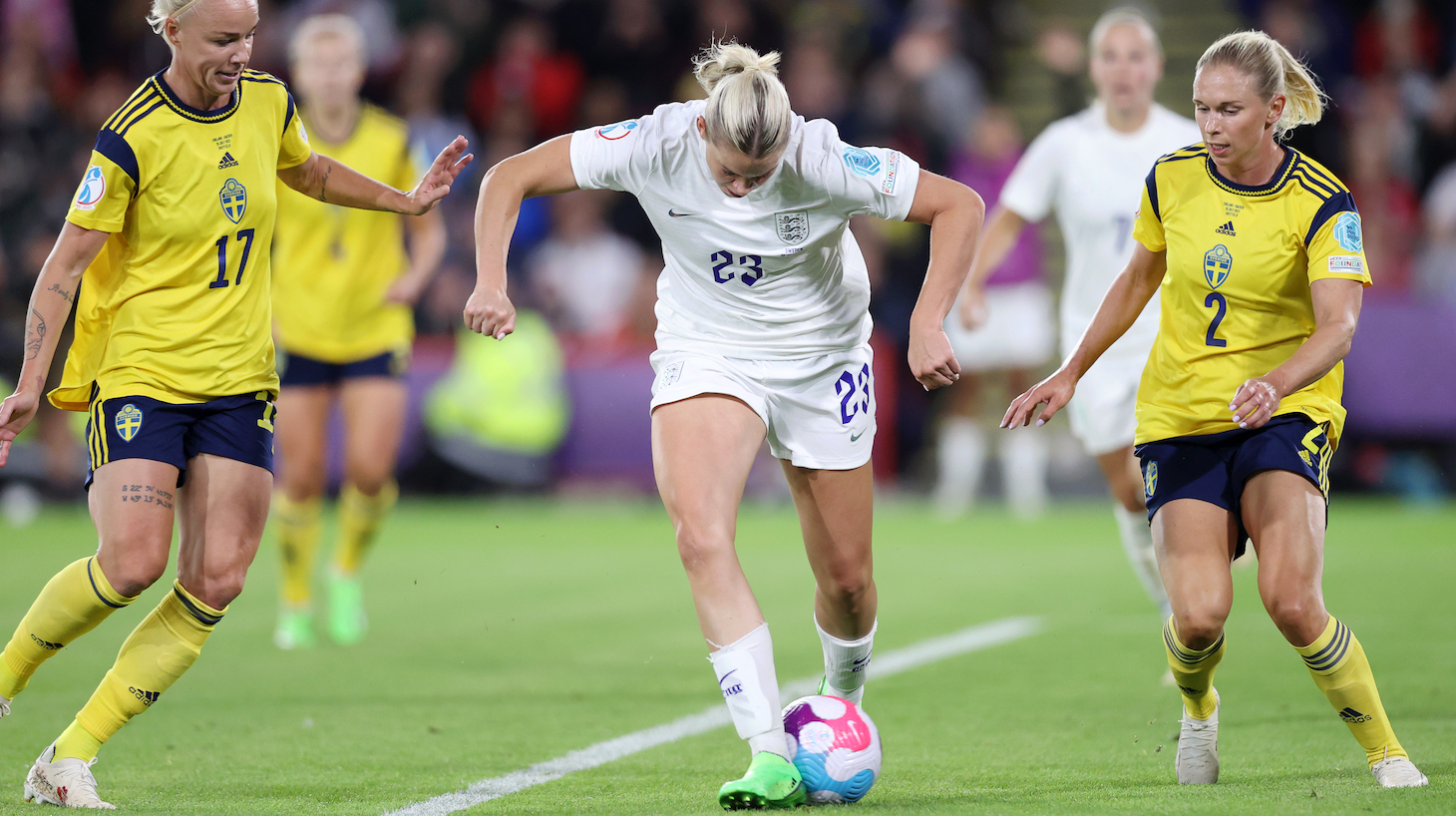The iconic moment of the match, which, should England finish the job by winning the Euro 2022 final, will likely also go down as the iconic moment of whole tournament, was one of the most splendid goals you'll ever see. It was also decidedly un-English. When you think about a prototypically English goal, you probably don't imagine a forward carrying the ball away from goal at an acute angle, two defenders pestering her back, and a sort of rabona backheel strike that fizzes between the goalkeeper's legs and settles into the net. In fact just about the only thing that felt fitting about the back-breaking third goal in England's 4–0 romp over Sweden in Tuesday's Euro semifinal was that the scorer bears a notably non-Anglo name like Alessia Russo.
RUSSO WITH THE BACKHEEL NUTMEG TO PUT ENGLAND ONE STEP FROM THE FINAL 😳🏴 pic.twitter.com/EGz34224Wl
— ESPN FC (@ESPNFC) July 26, 2022
But the brilliance of that goal, the commanding and free-flowing performance it crowned, and the tourney-long dominance it instantiated all testify to what kind of team this edition of England is. It may not be the kind of soccer you expect from the crest on the shirt, and it's all the better for it.
While it is true that by the final whistle the match could only be described as an English demolition job, that's not how things looked from the start. Sweden was the better team for much of the first 30 minutes of play, and only some bad luck and some superb goalkeeping from Mary Earps kept Sweden from opening the scoring themselves. But that too is in keeping with how England has played at these Euros. The Lionesses have been great at not getting down or going down during the times their opponent has control of the match, and they have excelled at manifesting their own stretches of control on the scoreboard by getting the ball over the goal line.
Tuesday's match was a perfect example of how goals change games, and of how being good at scoring goals is the sport's ultimate advantage. Had Sweden taken any of its several chances during the opening half hour, the tenor of the match would've completely changed, saddling England with the oppressive weight of expectations and anxiety that often plague the English, who seem to combat both their opponents and also their own cumulative history whenever they step onto major tournament pitches. An early Swedish goal wouldn't necessarily have been decisive, not after this same English team proved its mettle by withstanding a Spanish onslaught before securing a come-from-behind victory in its previous match, but it would've made things much more difficult. Instead, Sweden failed to reify its good play with a goal, and England did just that with Bethany Mead's momentum-flipping opening goal in the 34th minute, and from then on out, aided by each successive goal, the match only continued to tilt in favor of the tournament hosts.
At this point, England has been by far the best team of the tournament. The Lionesses have scored the most goals (20) and have conceded only once. They have the tournament's leading scorer and its leading assister, both honors belonging to Mead with her six goals and five assists. It is true that the final should prove England's toughest challenge yet, since they will face either Germany, the tournament's other outstanding team thus far, or France, which possesses probably the most talented squad in Europe. It would not be a shock if either Germany or France won the final, and in fact it would be quintessentially English for this team to impress all tournament long only to stumble at the crucial moment. But maybe it's that, the Englishness of a potential final disappointment and the non-Englishness of this England team, that makes anything other than triumph feel so unlikely.






